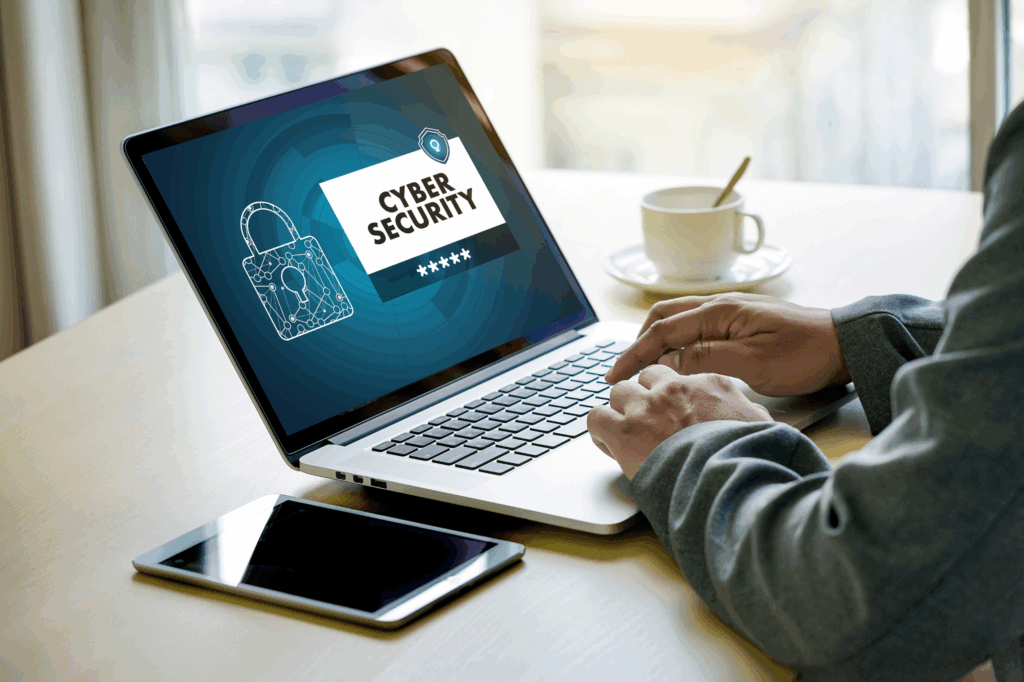If you’re ever in the mood to scare yourself, enter the phrase “latest cybersecurity threats” in your search engine and notice how many hits you get. If you want an even bigger fright, take the time to read a few of the stories that come up. You don’t need to go very far back in time: the Ticketmaster data breach in May 2024 exposed 560 million customer records; two breaches at AT&T in that same year cost the company $177 million in damages. In other words, every single day, hackers are out there, inventing new software viruses and refining old ones—working on more and better ways to get illegal access to your data. And now, with advancements made possible by artificial intelligence (AI), online criminals are developing new ways to get access to your sensitive personal and financial information.
Should you stop using your cards and disconnect your computer from the internet? Well, that’s not really a viable option either, in today’s society. So let’s review a few key habits you should form that will make you a harder target for hackers and increase your peace of mind while performing the dozens of necessary online tasks that are part of daily life.
- Don’t send sensitive personal information via email. Sure, it’s easy to just email your Social Security number, driver’s license number, or life insurance policy number to your agent, your banker, or a prospective employer—but don’t do it! Most email is not encrypted, and hackers can scoop your data. If the entity you’re dealing with doesn’t offer you a secure upload site for sensitive data, either fax it (to a carefully confirmed number that is attended to avoid prying eyes) or mail hard copies. For extra security, use a trackable method like US Postal Service Priority Mail, FedEx, or some other service.
- Monitor your accounts. Most banks and credit card companies have greatly improved their fraud monitoring and alerting capabilities, but that shouldn’t relieve you from reviewing your account statements on a regular basis. Look for charges or payees you don’t recognize. Even a small charge of less than a dollar can signal that an identity thief has your number and is checking to see if it works. Chances are, the next charge won’t be so small.
- Change your passwords periodically. Yes, we all realize that it’s a pain to change a password that you’ve finally memorized. But hackers use powerful programs that can crack passwords, and your best defense is to always present a moving target. Handy apps like RoboForm, Keeper, 1Password, and others can help you keep track of everything. (Pro tip: you also need to periodically change the password for your password manager app.)
- Don’t be quick to click. An innocent-looking link in an email or Facebook post—even if it’s from someone whose name you recognize—can lead down a rabbit hole toward a world of hurt. If the email is mostly blank except for the link, don’t click it. If it’s telling you about a prize you’ve won and all you need to do is click to claim it, don’t click it. If something looks odd—for example, the name of the sender is familiar but the email address isn’t—don’t click it. The same goes for many pop-up windows on web pages. Be careful where you click, and you’ll avoid tons of digital heartache. When in doubt, trash it. In fact, the overall key here is: “slow down.” Always take your time, especially when encountering unexpected emails, addresses that don’t match the official web address (even when the branding, logos, etc., appear “genuine”), misspelled words or incorrect grammar, a message that creates a sense of urgency, etc. These days, our email inboxes fill rapidly, and it’s easy to get into the habit of clicking through quickly, but the more you can pay attention, take your time, and notice the red flags mentioned above, the safer you’ll be online.
- Embrace Two-Factor Authentication. Many websites dealing with sensitive information, such as financial and healthcare companies, are now requiring two-factor authentication. As the name implies, this process requires you to authenticate your account using two methods. Typically, after you enter your username and password, you’ll get a text message or email from the company containing an access code that you must enter within a time limit in order to access the site. By requiring confirmation from a personal device, the site is helping you avoid having your information accessed by a hacker who may have used a password-breaking program or got your username and password from a data breach.
- Your Phone Can Still Be a Danger Zone. Vigilance when receiving phone calls is still important. For example, hackers can use AI to record and mimic your voice. By calling you and asking a question that requires a simple “yes” answer, they can use your recorded voice to create messages that sound amazingly similar to you, which can then be used to access certain systems that are voice-activated or even to contact your friends and relatives to solicit funds supposedly intended to benefit you, such as appeals for emergency money. Remember, entities like the Internal Revenue Service, Social Security, most banks, and most investment companies will never call you on the phone and request sensitive information. Unless you initiated the call to a known number or unless it’s coming from a source you know and you are 100% confident of who you are speaking with, hang up.
- Social Media Can Be “Anti-Social.” We all enjoy the convenience of apps like Facebook, Instagram, and others that let us keep up with family, friends, and acquaintances, even across great distances. But be careful what you share. A post on Facebook that announces your upcoming tour of the Continent looks to a burglar like a flashing neon sign that says, “Nobody home.” Not only that, but posting personal information on social media—birthdays, places of birth, names of high schools or colleges attended, favorite pets, etc.—provides hackers with important clues for guessing passwords or security questions and creating scams with enough personal information included to appear legitimate. Go ahead and let everyone know you traveled—once you’re back home. And be stingy with putting personal details where the whole world can see them.
Most of these safety tips involve lots of basic common sense. However, many of us tend to get in a hurry when we’re working online, and sometimes caution gets lost along the way. So take your time, engage your suspicious instincts, and stay safe out there! And if you have any questions or concerns involving the security of your accounts at The Planning Center, please contact us.






